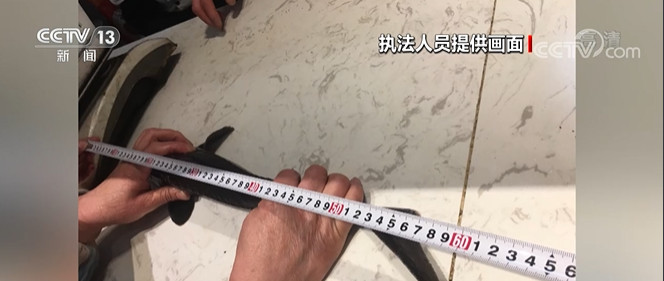More than 800 restaurants in Chengdu, Sichuan are selling "Jiangxian" to rectify catering enterprises.
CCTV News: From the end of December 2020, the Chengdu Municipal Market Supervision Bureau of Sichuan Province launched the "Spring Thunder Action 2021", in which the "Yangtze River is forbidden to catch and break the chain" joint law enforcement action, and through the strict investigation of aquatic products business households, food markets, catering enterprises and other points, the inspection records of merchants’ purchases and the legal sources of aquatic products were carried out.
At the end of February this year, during a surprise inspection, law enforcement officers found that "Chinese sturgeon", a national key wild protected animal in 88 yuan/Jin, was actually peddled in the menu of a catering enterprise in Pidu District, and the law enforcement officers seized these four live fish suspected of "Chinese sturgeon" on the spot. After identification by the Fisheries Research Institute of Sichuan Academy of Agricultural Sciences, the results showed that these so-called wild "Chinese sturgeon" were actually hybrid sturgeons of Russian Siberian sturgeon and Acipenser schrenckii, not the wild "Chinese sturgeon" advertised by the store.

The special inspection found that some catering enterprises used wild animals and key protected animals in "rivers, lakes and seas" as gimmicks to make false propaganda. According to the identification of the aquatic products authorities, these so-called wild fish are artificially domesticated and propagated. As some merchants are unable to provide relevant domestication qualifications and purchase vouchers, they are being investigated and dealt with.
At present, the joint enforcement action of "No Fishing in the Yangtze River and No Breaking of Chain" has inspected 6,042 farmer’s (wholesale) markets, 5,728 supermarkets and 38,035 catering units, and found that 862 catering units failed to implement the requirements of incoming inspection records and could not provide legal source certificates for aquatic products, and have been ordered to complete rectification, and 54 illegal cases have been filed for investigation.